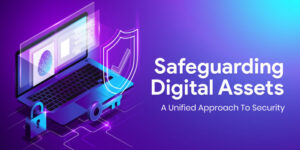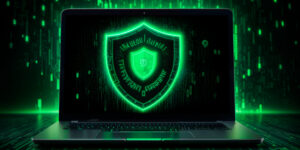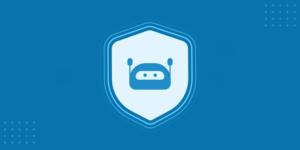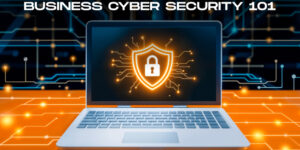
Welcome to an in-depth exploration of a crucial aspect of our digital lives: online security. In this rapidly evolving technological landscape, staying informed and taking the necessary steps to safeguard our digital assets has become more important than ever before.
Whether you are already aware of the security risks, just beginning to grasp the importance of protection, or already implementing your security strategy, this article is here to provide you with easy-to-understand comprehensive information and effective solutions.
By learning about the risks and understanding what is within our control, we can take proactive steps toward a more secure digital future. Let’s empower ourselves with knowledge and make informed choices to protect our digital lives and the well-being of those around us.
A growing need for enhanced online security
In today’s interconnected world, we find ourselves facing a myriad of threats when venturing into the vast expanses of the internet. Malicious actors are continuously devising new methods to exploit vulnerabilities, compromising our personal information, and exposing us to risks such as identity theft, financial loss, and even emotional distress. It is essential to address these concerns promptly and effectively to safeguard our digital lives.
Antivirus: a defense mechanism with limitations
Antivirus programs serve as the first line of defense against digital threats, offering a range of features designed to detect and neutralize malware, ransomware, and other malicious entities. These programs work by scanning files, websites, and emails, using extensive databases of known malware signatures, and employing advanced heuristics to identify emerging threats. Through their vigilant monitoring, they strive to keep your digital environment secure.
While antivirus software plays a crucial role in bolstering our online security, it is important to understand its limitations. Traditional antivirus programs primarily focus on known threats and may struggle to detect sophisticated attacks, including zero-day exploits or advanced persistent threats (APTs).
Additionally, they may not be equipped to prevent social engineering attacks such as phishing scams, where individuals are manipulated into divulging sensitive information. To ensure comprehensive online security, adopting a multi-layered approach is imperative.
Choosing the right antivirus: key considerations
When selecting an antivirus program, it is crucial to choose a reputable provider that offers real-time protection, automatic updates, and proactive threat detection. Taking the time to evaluate and choose the right solution can greatly enhance your online security posture. Look for features such as behavioral analysis, web protection, and vulnerability scanning, as these bolster your defense against evolving threats.
Enhancing your protection: build a strong defense
To fortify your online security, it is essential to supplement your antivirus software with additional measures. This includes implementing a robust firewall, maintaining secure browsing habits, and regularly updating your software to patch vulnerabilities. Educating yourself and your loved ones about common online threats and adopting safe online practices are also paramount. By combining these strategies, you can significantly reduce the risk of falling victim to cyberattacks.
Real-life examples: highlighting the risks we face
Consider the impact of cybercrime on unsuspecting individuals and businesses. A small business owner falling victim to a ransomware attack can result in substantial financial losses, customer data breaches, and irreparable damage to their reputation.
Similarly, a student unknowingly downloading a malicious attachment can have their personal information exposed, leading to identity theft and significant financial repercussions. These real-life examples underscore the urgent need to prioritize our online security and proactively protect ourselves.
The secrets to security: vigilance and continuous learning
Developing a solid understanding of online security is a journey that requires continuous learning and vigilance. While antivirus software and additional security measures are crucial components of a comprehensive defense strategy, there is a secret ingredient that can take your security to the next level: staying informed, educating family, friends, and employees, including the crescent wave of remote workers, and constantly adapting to the ever-evolving threat landscape.
The digital world is in a constant state of flux, with cybercriminals devising new tactics and exploiting emerging vulnerabilities. To stay ahead, it’s vital to proactively stay updated on the latest security trends, best practices, and emerging threats. Knowledge is power when it comes to safeguarding your digital presence.
Here are some key steps to incorporate into your security regimen
- Stay informed: Make it a habit to follow trusted cybersecurity news sources, industry blogs, and forums. By staying informed, you can be aware of new threats, vulnerabilities, and security solutions.
- Educate yourself: Take advantage of the abundance of resources available online, such as security courses, webinars, and tutorials. Develop a strong foundational knowledge of cybersecurity principles and practices to make informed decisions and protect yourself effectively.
- A strong password practice: Regularly update and strengthen your passwords. Avoid reusing passwords across multiple accounts and consider using a password manager to securely store and manage your login credentials.
- Enable multi-factor authentication (MFA): MFA adds an extra layer of security by requiring additional verification, such as a fingerprint scan or a unique code sent to your mobile device, when logging into your accounts. Enable MFA wherever possible to bolster your defenses.
- Be wary of social engineering: Social engineering attacks, such as phishing and pretexting, rely on manipulating human psychology to trick individuals into divulging sensitive information. Develop a healthy skepticism and be cautious when responding to unsolicited emails, messages, or phone calls.
- Keep your software updated: make sure your operating systems, applications, and antivirus software are kept up to date regularly. Software updates often include security patches that address known vulnerabilities and improve overall system security.
- Backup your data: Regularly backup your important files and documents to an external storage device or cloud service. In the event of a ransomware attack or hardware failure, having a secure backup ensures you can recover your data without paying a ransom or losing valuable information.
By embracing a mindset of continuous learning and remaining vigilant, you become an active participant in your online security. Remember, security is a journey, not a destination. By implementing these practices and staying informed, you can strengthen your defenses and enjoy a safer and more secure digital experience.
Conclusion: A secure digital future awaits
Protecting our online security is crucial in today’s digital landscape. By combining antivirus software with additional security measures and a proactive mindset, we establish a strong defense against cyber threats. Staying informed, adapting to evolving threats, and implementing strong security measures empower us to navigate the digital world confidently.
Let’s prioritize online security, choose reputable antivirus solutions, and embrace a proactive approach to fortify our defenses. Together, we can create a safer online environment and unlock the potential of the digital world.






